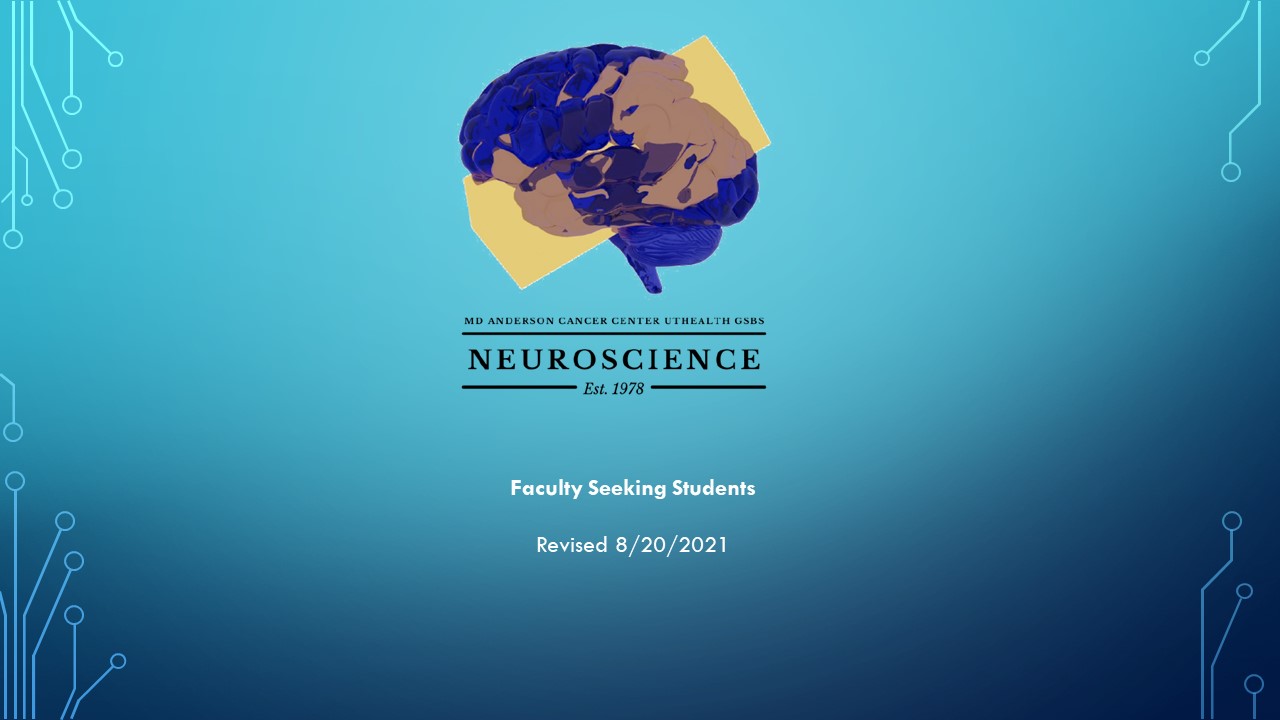Current Student Spotlight!
2020-2021 First Arthur Publications
Jing Cai, Ryan M. Cassidy, Jessie Morrill, Qingchun Tong (in press). Neurotransmitter Co-transmission in Brain Control of Feeding and Body Weight. Book chapter in Neural signaling. Brain Metabolism 2021
Emily F. Mendez, Haichao Wei, Ruifeng Hu, Laura Stertz, Gabriel R. Fries, Xizi Wu, Katherine E. Najera, Michael D. Monterey, Christie M. Lincoln, Joo-won Kim, Karla Moriel, Thomas D. Meyer, Sudhakar Selvaraj, Antonio L. Teixeira, Zhongming Zhao, Junqian Xu, Jiaqian Wu & Consuelo Walss-Bass Angiogenic gene networks are dysregulated in opioid use disorder: evidence from multi-omics and imaging of postmortem human brain. Molecular Psychiatry Journal 2021
Cana Quave, Nieto, S. J., Haile, C. N., Kosten, T. A. Immune receptor Toll-like receptor 4 contributes to stress-induced affective responses in a sex-specific manner. Brain, Behavior, & Immunity - Health, 14 2021
Russell Milton, Shahidi N, Dragoi V. Dynamic states of population activity in prefrontal cortical networks of freely-moving macaque. Nature Communications. 2020.
Shun-Ming Ting, Zhao X, Sun G, Obertas L, Ricote M, Aronowski J. Brain Cleanup as a Potential Target for Poststroke Recovery: The Role of RXR (Retinoic X Receptor) in Phagocytes. Stroke 2020
Shun-Ming Ting, Zhao X, Zheng X, Aronowski J. J Cereb. Excitatory pathway engaging glutamate, calcineurin, and NFAT upregulates IL-4 in ischemic neurons to polarize microglia. Blood Flow Metab 2020
Alumni Spotlight
Tara Fischer
NIH/NINDS, Washington, DC
Contact:tara.fischer@nih.gov
Dissertation Research (Pramod Dash, PhD):Investigating the role of mitochondrial fission in hippocampal pathology and associated learning and memory deficits in rodent models of Traumatic Brain Injury (TBI).
Postdoctoral Research (Richard J. Youle, PhD):Current research focuses on understanding how defects in the selective degradation of mitochondria (mitophagy) due to mutations in PINK1 or PRKN lead to cell death, inflammation, and progressive neurodegeneration in Parkinson’s Disease. Specifically, I am investigating the basic molecular machinery underlying quality control at the mitochondrial membranes and the degradation of intramitochondrial components, such as mtDNA, that may act as cytosolic signaling factors for activating innate immune pathways due to defects inin mitophagy.
To view the rest of our Neuroscience Alumni,click here















